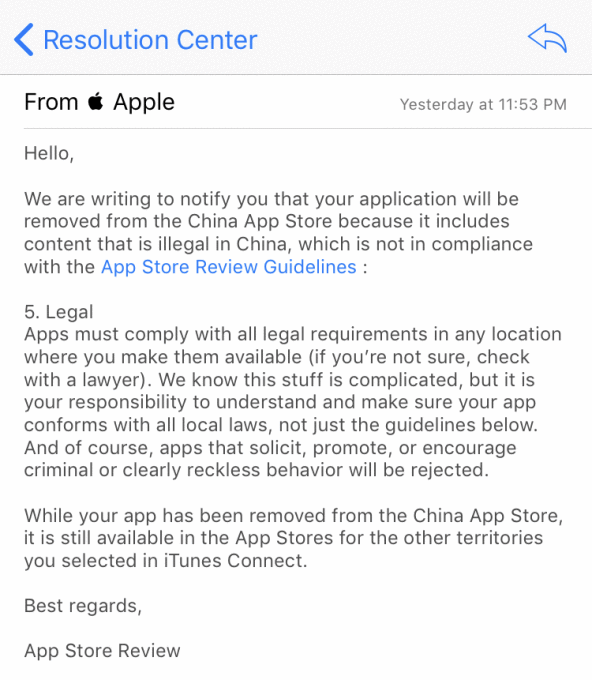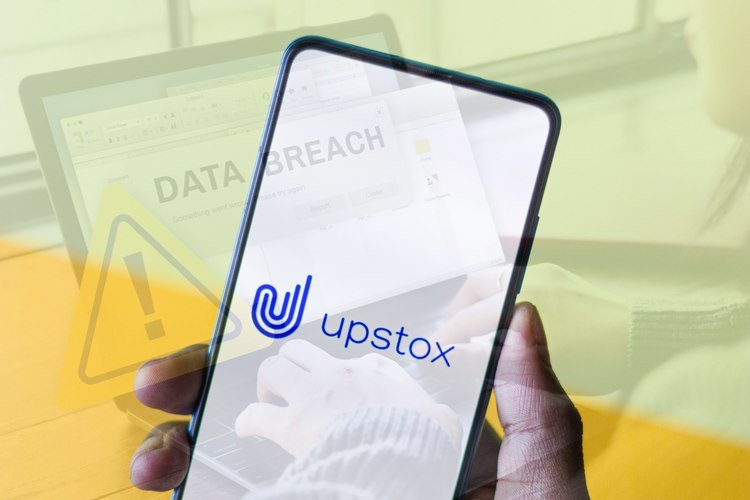To abide by the Chinese censorship law, Apple Remove VPN Apps from all China Private Appliances virtual private network (VPN) applications, making it more difficult for Internet users to circumvent the Great Firewall.
VPN service providers providing services in China have accused the Giants meet the strict American standard Cybernetics of China.
In a blog post, the ExpressVPN developers reported that Apple informed them that their VPN application had been withdrawn by the Chinese App Store company and it seems that all major VPN clients received the same Apple alert.
Also Read: Google Detected Dangerous Lipizzan Spyware Apps On Play Store
China has stringent Internet censorship through the Great Firewall of China – the Golden Shield project in the country that employs a variety of tricks to censor the Internet and block access to major foreign websites in the country.
The Great Firewall is already blocking about 171 of the top 1,000 websites worldwide, including Google, Facebook, Twitter, Dropbox, Tumblr and The Pirate Bay in the country.
Therefore, to counter these restrictions and access these websites, hundreds of millions of Chinese citizens use virtual private networks (VPNs) to encrypt online traffic and route through a remote connection.
However, earlier this year, China announced a vice versa on VPN and proxy services in the country and forced all VPN providers and cable operators of leased lines to have a government license to use such services.
This 14-month campaign lifetime for the use of unattended Internet connections, including VPNs, was launched by the Ministry of Industry and Information Technology of the country, calling it “cleaning” of Internet connections in China.
Now, ExpressVPN has received an Apple alert that Apple Remove VPN Apps From App Store in China “because it contains content that is illegal in China.”
“We are disappointed with this development, as it represents the most drastic measure the Chinese government has taken to block the use of VPN to date, and we are interested in seeing Apple help China’s censorship efforts,” he said in ExpressVPN a statement.
ExpressVPN not only alone but another VPN service provider, Stella VPN, also received the same note from Apple that Apple Remove VPN Apps, confirmed the company through its official Twitter account on Saturday.
Also Read: CowerSnail Is Windows Backdoor From Creators Of Sambacry Linux Malware
“We are writing to inform you that the app will be removed from the App Store in China because it includes illegal content in China,” Apple said in the announcement. “We know it’s complicated, but it is your responsibility to understand and ensure that your application complies with all local laws.”
Although Apple has not commented on this issue, it is no coincidence, as the company has been harshly applying various aspects of Chinese law over the last few months for its regional operations in the most populous country.
Earlier this year, Apple removed the New York Times (NYT) application from its App Store in China because the application was in “violation of local standards.”
The technology giant has partnered with a local firm in the southwestern province of Guizhou earlier this month to establish its first data center in China, which will contain all user information for Chinese customers.

According to ExpressVPN Apple Remove VPN Apps:
“We received notification from Apple today, July 29, 2017, at about 0400 GMT, the ExpressVPN iOS app has been removed from the App Store in China. Our Preliminary Survey indicates that all major iOS VPN applications have eliminated “.
“Although Apple’s decision is surprising and unlucky, it does not change ExpressVPN’s commitment to keeping it connected safely and reliably. Our support team is ready 24/7, even through live chat to help interested users.”



